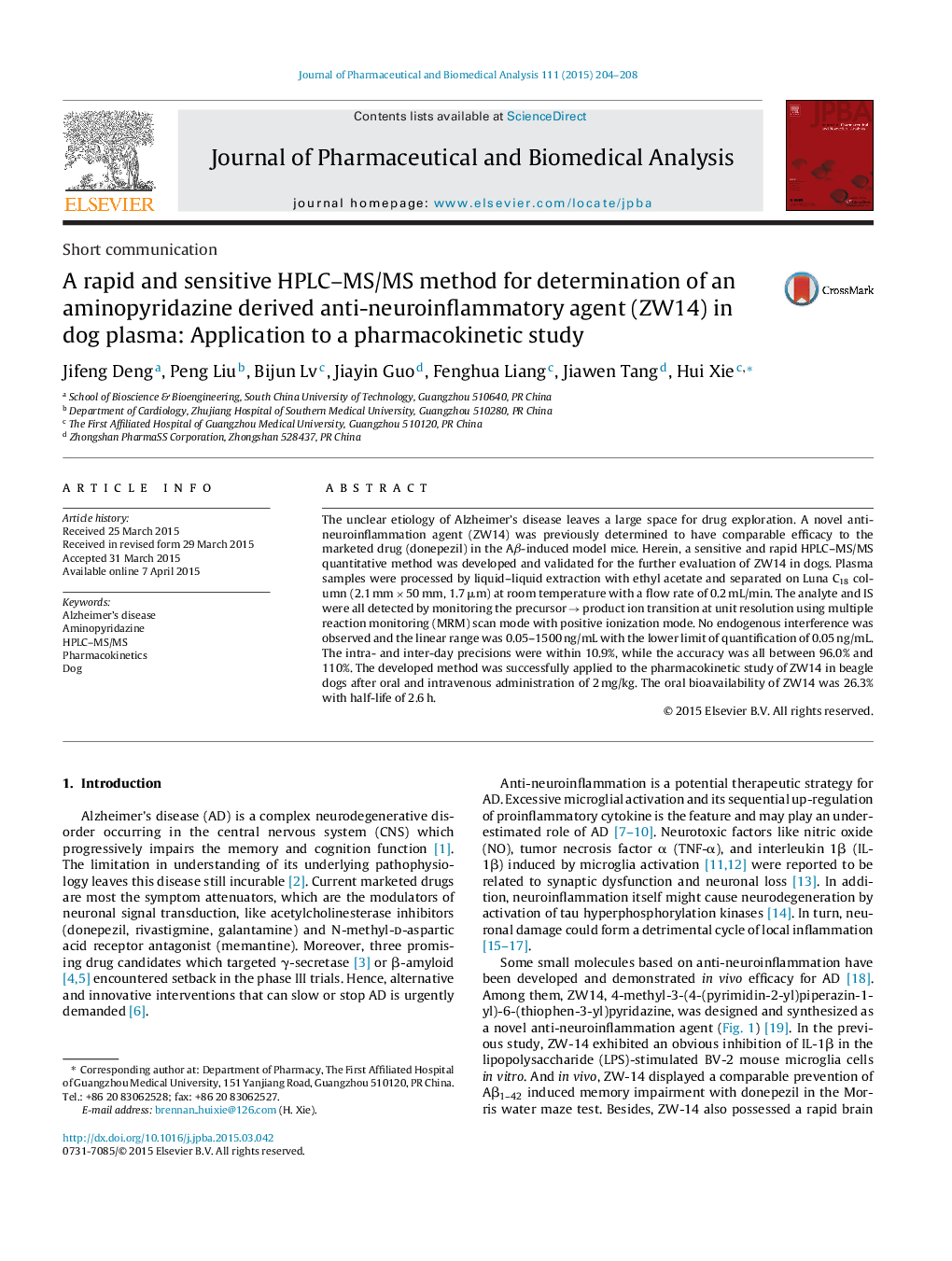| کد مقاله | کد نشریه | سال انتشار | مقاله انگلیسی | نسخه تمام متن |
|---|---|---|---|---|
| 1220783 | 1494624 | 2015 | 5 صفحه PDF | دانلود رایگان |

• ZW14 is a novel anti-neuroinflammatory drug candidate for Alzheimer's disease.
• This is a thorough pharmacokinetic report for ZW14 in beagle dogs.
• LLE with ethyl acetate was a robust preparation method for aminopyridazine derivatives.
• The t1/2 and oral bioavailability of ZW14 were 2.6 ± 0.6 h and 26.3% respectively.
The unclear etiology of Alzheimer's disease leaves a large space for drug exploration. A novel anti-neuroinflammation agent (ZW14) was previously determined to have comparable efficacy to the marketed drug (donepezil) in the Aβ-induced model mice. Herein, a sensitive and rapid HPLC–MS/MS quantitative method was developed and validated for the further evaluation of ZW14 in dogs. Plasma samples were processed by liquid–liquid extraction with ethyl acetate and separated on Luna C18 column (2.1 mm × 50 mm, 1.7 μm) at room temperature with a flow rate of 0.2 mL/min. The analyte and IS were all detected by monitoring the precursor → product ion transition at unit resolution using multiple reaction monitoring (MRM) scan mode with positive ionization mode. No endogenous interference was observed and the linear range was 0.05–1500 ng/mL with the lower limit of quantification of 0.05 ng/mL. The intra- and inter-day precisions were within 10.9%, while the accuracy was all between 96.0% and 110%. The developed method was successfully applied to the pharmacokinetic study of ZW14 in beagle dogs after oral and intravenous administration of 2 mg/kg. The oral bioavailability of ZW14 was 26.3% with half-life of 2.6 h.
Figure optionsDownload as PowerPoint slide
Journal: Journal of Pharmaceutical and Biomedical Analysis - Volume 111, 10 July 2015, Pages 204–208